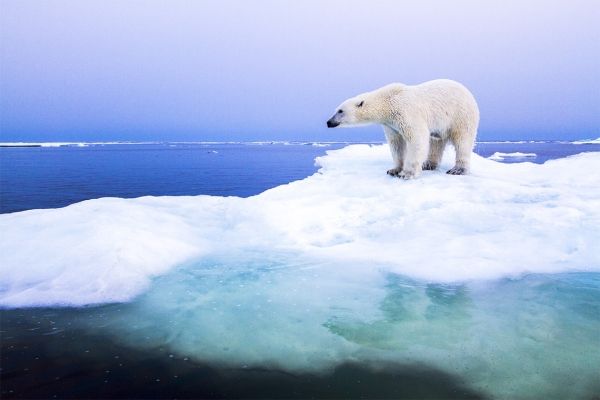Ice cover in a marine protected area in the Far North – potentially the last refuge for Arctic animals that depend on sea ice for their survival – is disappearing twice as fast as ice in the rest of the Arctic Ocean.
The finding is part of a study recently published in the journal Geophysical Research Letters that also reveals the area is comprised of two dynamic sub-regions.
“(The) area is quite dynamic and we thought we should look at it to try to understand it because no one had actually ever done any work in this area of the Arctic,” says Kent Moore, an atmospheric physicist at the University of Toronto Mississauga and lead author of the new study.
Known as the Last Ice Area, the region is home to the oldest and thickest sea ice in the Arctic. With climate forecasts predicting the Arctic could experience ice-free summers as early as 2030, researchers anticipate this will be the last area ice will be present in the Arctic year-round, making it an important sanctuary for a wide variety of Arctic species.
Continue reading at University of Toronto.
Image via Paul Souders/Getty Images.


